Three and a half decades on, “My Dinner With Andre” remains a succulent piece of filmmaking.
The ultimate talkie has lost none of the charm, mystery and wisdom that turned it into an indie hit back in 1981.
Somehow, the film about two intellectuals talking in a Manhattan restaurant became a cultural sensation — this in the time of “The Empire Strikes Back” and “Raiders of the Lost Ark.”
Success came in part because the new breed of celebrity movie critics sang the praises of “My Dinner With Andre,” transforming it from arthouse fare to a popcorn movie for smart people. Everyone knew the title, at least, as the “My Dinner With … ” part became a national catchphrase that year.
The Criterion Collection is back for another course of “My Dinner with Andre,” this time serving up the indie film on a single Blu-ray. It repeats the extras found on the 2009 double-DVD edition, primarily the video interviews with the two “stars,” the theatrical director Andre Gregory and the actor/writer/director Wallace Shawn.
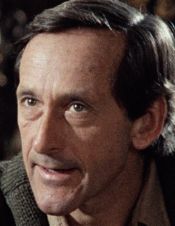 The Blu-ray’s images are what they are — grainy and on the soft side. Owners of the old Criterion DVD would notice, however, a remarkable upgrade in audio, specifically the quality of the conversationalists’ voices. The Blu-ray comes in uncompressed mono audio, and it’s lovely. Seemingly a detail for the fussy, but as Gregory points out in the Blu-ray extras, much of the film relies on the contrast between his smooth voice and Shawn’s often high-pitched queries and exclamations. On the DVD, some of that was lost. On the Blu-ray, it’s found.
The Blu-ray’s images are what they are — grainy and on the soft side. Owners of the old Criterion DVD would notice, however, a remarkable upgrade in audio, specifically the quality of the conversationalists’ voices. The Blu-ray comes in uncompressed mono audio, and it’s lovely. Seemingly a detail for the fussy, but as Gregory points out in the Blu-ray extras, much of the film relies on the contrast between his smooth voice and Shawn’s often high-pitched queries and exclamations. On the DVD, some of that was lost. On the Blu-ray, it’s found.
The men talk separately on the Blu-ray extras, chronicling the development of the script and film, and expanding upon their ongoing working relationship and friendship. The interviews are ably conducted by “Andre” fan Noah Baumbach (“The Squid and the Whale”), who was something like 12 when the movie came out.
Gregory is up first. The theater director tells how he gave “Wally” his first break after reading the writer’s plays, which no one else liked. The movie came out of their conversations, casual at first, then quite deliberate: The men spent six months taping their talks before Shawn wrote the script.
“I had a real need to tell my story,” says Gregory, whose real-life success had allowed him to travel the world in search of realization.
“I would go to parties and I would tell these stories (about my adventures) to entertain people. I think subconsciously I was rehearsing a movie.”
In the film, the Andre character’s seductive rap covers the Big Questions of existence, including the nature of human consciousness and the meaning of Self. While Andre covers now-familiar spiritual/humanistic ground, audiences of the early ’80s celebrated this graceful synthesis of high-plane teachings that came packaged without love beads, gurus and patchouli oil.
Part of the teaching was that it was possible to find yourself through extraordinary experience — in one case, Andre underwent a simulated burial of himself.
“If you like the movie, it’s waking you up,” Gregory says. “Which is one of the intentions of the movie.”
Expectations for the project were low, Gregory says, even after the successful French director Louis Malle signed on. “Nobody but our friends and loved ones would go see it. That was clear.”
Still, Gregory saw the one-location “Andre” as an epic of sorts: “Because we’re storytellers, the movie is as big as ‘Lawrence of Arabia’ or ‘Cleopatra.’ When the audience hears the Gregory character’s tales, “they go to Tibet (and the Sahara, Poland, Scotland).” The film is “activating the imagination” of what that would be like.
Shawn marvels all those years later at how the film’s director put up with his artistic temperament, back when Shawn was a failed playwright. Shawn’s original script for “Andre” ran over three hours, and none of it could be cut, he argued.
Shawn says of the late Malle’s direction: “He captured things in me that I didn’t know I was revealing … I can’t watch the movie (because of this). … It’s a little bit too heartbreaking.”
The two Americans had to sell Malle on the idea of shooting “My Dinner With Andre” as a dinner-table conversation. Other original concepts for the film included having the characters be talking heads on TV, two prisoners in Alcatraz, gay lovers or maybe strangers on a train. Before Malles’ death they briefly toyed with the idea of reuniting the two characters in their golden years, talking about nothing but sex, a topic almost nonexistent in the original.
Shawn’s character spends much of the film slurping potato soup and munching quail while listening to Andre go on and on about his explorations, visions, philosophies and fears. In the final reel, our listener mans up and mounts a defense of what it is like to be a regular guy, satisfied with commonplace pleasures.
In reality, Shawn says, he agreed with Andre, not his own fearful bourgeois character. “I wanted to kill that side of myself by making the movie.” The two stars are “very seriously different” than the characters, he adds.
So how does the real Andre feel about the quality of talk these days? “When I go to restaurants now and listen to the conversation around me, it’s horrifying,” Gregory says.
The Criterion Blu-ray of “My Dinner With Andre” also includes an archival BBC profile of director Louis Malles, titled “My Dinner With Louis.” Malle’s remarkable French films are richly represented in the Criterion Collection.
Criterion also has released “Andre Gregory & Wallace Shawn: 3 Films,” a Blu-ray box set that includes “Andre” and their subsequent projects: 1994’s “Vanya on 42nd Street” (Chekhov) with director Malle and 2014’s “A Master Builder” (Ibsen) with director Jonathan Demme.
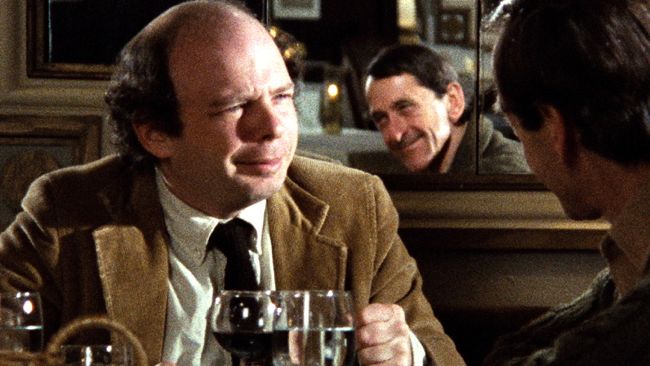
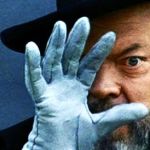
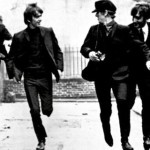
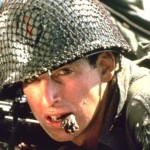
Leave a Reply